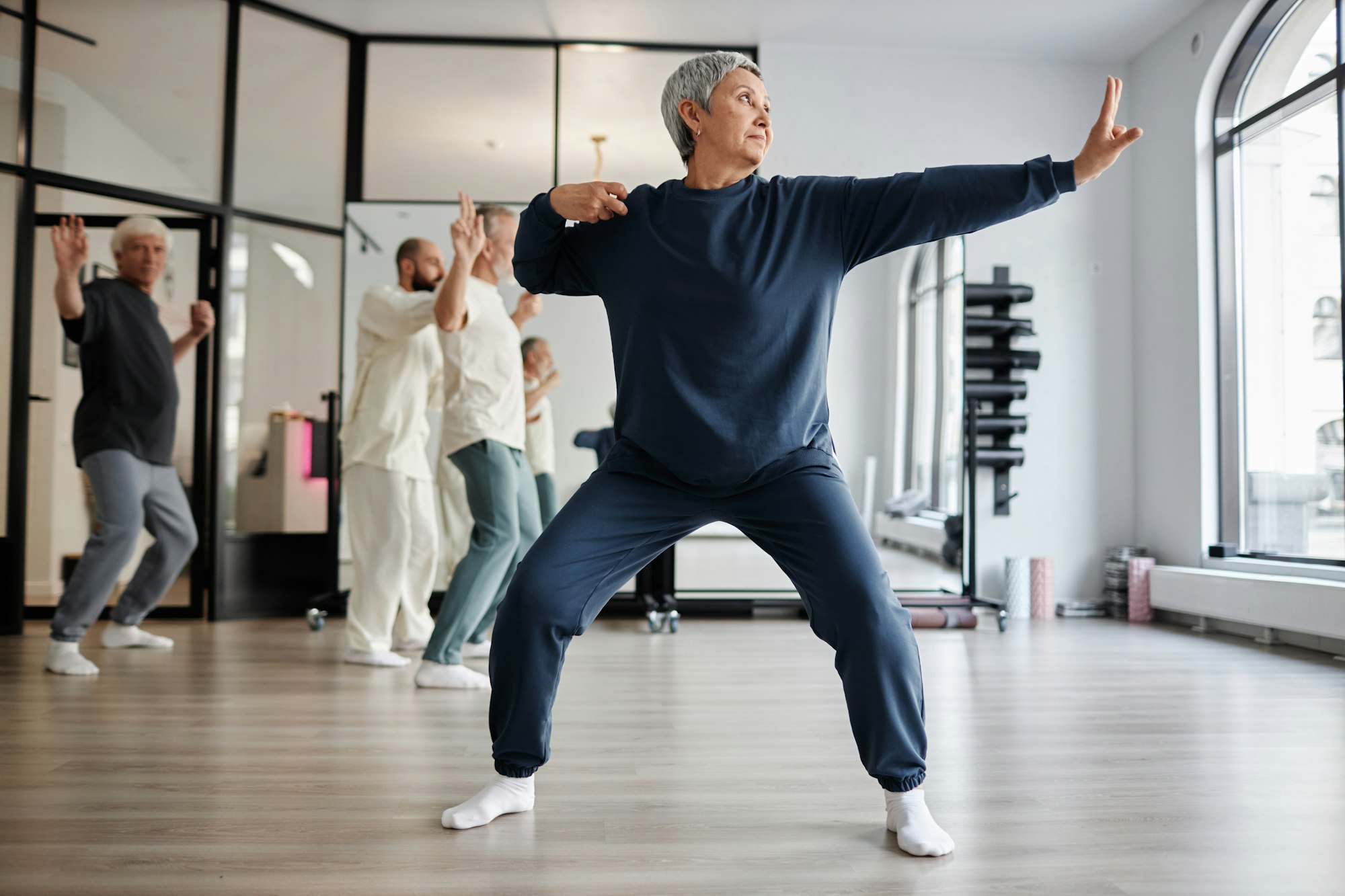Overview of Qigong and Its Practice
Qigong is a centuries-old practice rooted in ancient Chinese traditions, emphasizing the harmonious balance between the mind and body. At its core, Qigong involves a series of slow, deliberate movements, breathing exercises, and mental focus, designed to cultivate and balance the body’s vital energy, or “Qi.” This practice has evolved over millennia, branching into numerous variations that cater to diverse needs and preferences, while consistently promoting immune health and overall well-being.
The traditional practices of Qigong combine physical postures, breathing techniques, and mental exercises. These components are intertwined to enhance the practitioner’s awareness of their own body’s energy flow. In modern times, these variations can be tailored to suit the specific needs of aging adults looking to improve flexibility, strength, and immune resilience.
Also to discover : Unlocking the Mind: The Cognitive and Social Advantages of Immersive Live Theater Experiences
A critical aspect of Qigong is the mind-body connection, which is fortified through meditation and focused breathing. By aligning the mind with the body’s movements, practitioners can reduce stress, improve mood, and potentially boost their immune system. This integration of mental and physical elements is what sets Qigong apart from other forms of exercise, allowing it to address both mental and physical health comprehensively.
Scientific Research on Qigong and Immune Function
Exploring the scientific studies on the benefits of Qigong unveils its influence on the immune system. Renowned research highlights the positive impact of this ancient practice in enhancing immune responses. Key studies have demonstrated that regular Qigong practice can increase the production of immunoglobulins, which are antibodies that play a crucial role in immune defense. Furthermore, Qigong can stimulate the activity of natural killer cells, vital components responsible for combating infections and tumors.
Topic to read : Exploring the Influence of Biophilic Design in Workspaces on Employee Well-Being: A Comprehensive Overview
The mechanisms that enable Qigong to enhance immune function are both fascinating and complex. Through its meditative and physical components, Qigong appears to reduce stress, which is a well-documented suppressant of immune activity. By promoting relaxation and encouraging breath control, it maintains optimal cortisol levels, ensuring the immune system remains vigilant and robust.
Comparatively, Qigong stands out among other mind-body practices. While yoga and tai chi share some overlapping benefits, Qigong is uniquely characterized by its emphasis on energy flow and breath synchronization, which some studies suggest provides superior benefits to immune function. Thus, integrating Qigong into one’s routine can be a strategic wellness practice, potentially improving overall immune health more effectively than certain other practices.
Benefits of Qigong for Aging Adults
One of the most remarkable benefits of Qigong for aging populations is its positive effect on immune health. Studies have shown that regular practice can enhance the immune response, which is crucial for aging health as it helps combat infections and illnesses. By engaging in Qigong, older adults may experience improved resistance to colds and other common ailments, contributing to a healthier, more robust life.
Beyond immune benefits, Qigong offers a range of broader physical and mental health benefits. Regular Qigong practice can enhance flexibility, balance, and coordination, reducing the risk of falls and injuries—a major concern in aging health. Mental clarity and focus may also improve, fostering a stronger cognitive function that can potentially delay age-related mental decline.
The emotional and psychological impacts of practicing Qigong cannot be overlooked. Many practitioners report heightened feelings of calm and a reduction in anxiety and stress. This, in turn, cultivates a more positive outlook on life, which is essential for maintaining overall well-being. The mindfulness element engaged during Qigong practice provides an outlet for emotional expression and processing, promoting a sense of emotional stability and peace.
Practical Tips for Incorporating Qigong in Daily Life
Incorporating Qigong practice into your daily routine can be a rejuvenating experience, especially for aging adults. Let’s explore a step-by-step approach to seamlessly integrate this practice into your life.
Begin your Qigong practice with a gentle warm-up. This could include simple joint rotations or light stretching. Such movements help to prepare the body and mind, making the subsequent exercises more effective. For aging adults, it’s essential to find the right balance between activity and rest. A recommended routine might involve practicing for 10 to 20 minutes every morning. Early hours are optimal due to their quiet and calming nature, which can enhance the mindfulness component of Qigong.
For those with limited mobility or specific health conditions, adaptations are crucial to ensure a safe Qigong practice. Seated Qigong routines are highly beneficial and allow engagement in exercises without overwhelming the body. These modified exercises maintain the core principles of Qigong: controlled breathing, gentle movement, and mental focus, even when seated.
Key benefits for older adults include improved balance, reduced stress, and enhanced flexibility. By integrating Qigong into your daily routine, you invite a nurturing habit that supports both physical and mental well-being, tailored to the unique needs of aging adults.
Limitations and Considerations of Qigong
While Qigong offers numerous health benefits, it’s essential to be aware of its limitations. For older adults, certain movements might pose potential risks, especially without proper guidance. The gentle nature of Qigong can create a misconception that all routines are inherently safe for everyone. However, health considerations are critical because some poses or meditations might be contraindicated for those with specific medical conditions.
Before starting a Qigong practice, it is imperative for individuals, particularly older adults, to consult healthcare providers. This ensures that the Qigong Limitations unique to their health status are addressed, thereby preventing adverse effects. Health professionals can provide tailored advice and adapt practices to suit personal capabilities and restrictions, thus enhancing safety.
Misconceptions about Qigong often include overestimating its ability to cure ailments or believing in immediate results. These common pitfalls can lead to disappointment or inappropriate practice intensity. Understanding the gentle and gradual approach of Qigong aids in setting realistic expectations.
Qigong practitioners should also remain aware of their physical limits and avoid pushing through discomfort or pain. Honouring one’s body and intuition is a key aspect of a safe practice, ensuring an enjoyable and beneficial experience. Consulting with experienced instructors further mitigates potential risks.
Expert Opinions on Qigong and Immune Health
Regarding Qigong insights, many experts believe this traditional practice plays a significant role in enhancing immune health. A considerable body of research, however, is met with skepticism. Healthcare perspectives often point out the need for rigorous scientific validation. Dr. Li Wang, a renowned immunologist, suggests that while some small-scale studies show Qigong’s potential in boosting immunity, larger and more controlled research is necessary to establish definitive conclusions.
Additionally, Qigong master Zhang Wei highlights that the practice promotes relaxation and improves energy flow, which could positively impact the immune system. Despite promising anecdotal evidence, expert analysis consistently stresses the importance of methodologically sound research to support these claims.
Given these diverse opinions, future research directions should focus on:
- Conducting long-term studies with larger participant groups
- Exploring the biochemical mechanisms behind Qigong’s effects
- Collaborating between traditional practitioners and modern scientists
These steps could potentially bridge the gap between traditional insights and empirical validation, providing a well-rounded understanding of Qigong’s role in immune health. By exploring these healthcare perspectives, researchers can uncover more about the nuanced relationship between Qigong practices and immune function.






